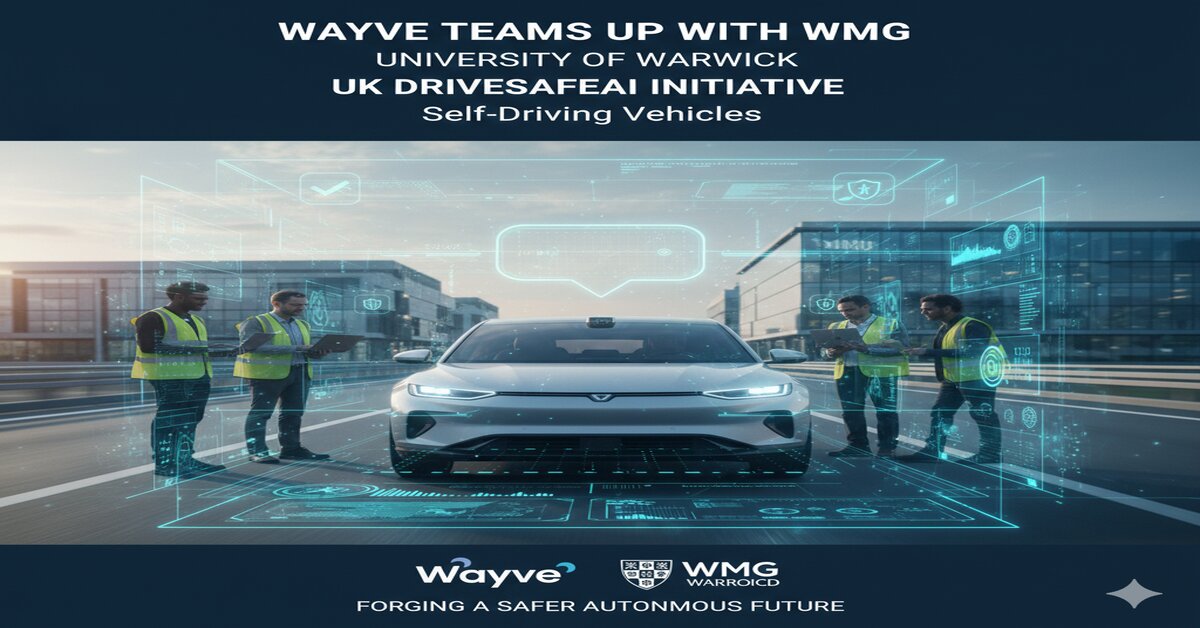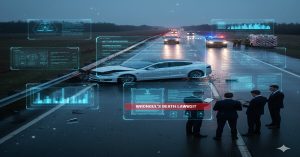Wayve, a pioneering self-driving technology developer, has joined forces with the WMG at the University of Warwick for a groundbreaking project named DriveSafeAI. The primary objective of this collaboration is to develop comprehensive methodologies to ensure the safe deployment of artificial intelligence (AI) in self-driving vehicles on the roads of the United Kingdom. This initiative holds significant promise for the future of autonomous transportation and aims to build trust among the public and policymakers in AI-powered self-driving technology.
DriveSafeAI marks a crucial milestone in the evolution of self-driving vehicles. By harnessing Wayve’s expertise in end-to-end machine learning for self-driving and WMG’s world-leading proficiency in verifying and validating the safety of self-driving technologies, this project is set to create a robust framework for AI-powered autonomous vehicles. This framework will encompass a set of safety methods, tools, and datasets tailored specifically for self-driving vehicles. Moreover, it will generate the necessary evidence to establish the foundation for future AI regulation and policy in the realm of autonomous driving. To ensure a comprehensive and unbiased approach, an independent advisory committee will provide valuable feedback throughout the project’s development.
Wayve’s approach to self-driving technology, known as AV2.0, is truly revolutionary. The company leverages data and AI to create an embodied artificial intelligence capable of driving any electric vehicle in any city. What sets Wayve apart is its ability to seamlessly integrate its technology with existing vehicle fleets and infrastructure, while also adapting seamlessly to new environments. This adaptable and flexible approach is poised to play a pivotal role in the widespread adoption of self-driving technology.
The importance of demonstrating the safety of AI in self-driving vehicles cannot be overstated. To realize the immense benefits of autonomous transportation and gain access to a market projected to be worth £42 billion (US$52.7 billion) by 2035, establishing trust among the public and policymakers is paramount. DriveSafeAI is a crucial step in this direction, as it will provide the necessary safety assurances to pave the way for the commercialization and mass deployment of self-driving vehicles.
DriveSafeAI is part of the Commercialising CAM Supply Chain Competition (CCAMSC), which received funding from the UK’s Centre for Connected and Automated Vehicles (CCAV). The CCAV is a joint unit between the Department for Business and Trade (DBT) and the Department for Transport (DfT), and the competition is delivered in partnership with Innovate UK and Zenzic. The £18.5 million (US$23.2 million) CCAMSC competition, launched in October 2022, is designed to support the deployment of self-driving vehicles by strengthening the capabilities of the sovereign UK CAM supply chain, aligning with the government’s vision for the future of self-driving vehicles.
Alex Kendall, CEO and co-founder of Wayve emphasized the critical importance of trust in autonomous technology. Kendall emphasized, “Here at Wayve, we recognize the fundamental significance of trust in our technology for the successful commercialization and broad adoption of self-driving vehicles. Through the power of AI, we have the opportunity to make the advantages of self-driving vehicles accessible to all. However, establishing trust in AI is our foremost priority. This is precisely why we’ve established close collaborations with both government institutions and academic partners to meticulously refine the methodologies we employ to substantiate the safety of our technology, ensuring their transparency and reliability.”
Kendall went on to express his excitement about the formal partnership with WMG, University of Warwick, renowned global leaders in the safety of artificial intelligence and autonomous systems. He believes that DriveSafeAI will play a pivotal role in instilling confidence in this transformative technology that has the potential to revolutionize transportation.
Professor Siddartha Khastgir, head of verification and validation at WMG, University of Warwick, echoed Kendall’s sentiments, emphasizing the disruptive potential of AI, particularly embodied AI like self-driving vehicles. Khastgir said, “AI and particularly embodied AIs like self-driving vehicles are one of the biggest disruptors for society. Deploying this technology safely is essential to realizing the huge opportunity they offer society.” He stressed the collaborative nature of proving the safety of this technology and highlighted the importance of robust research foundations for future policy.







